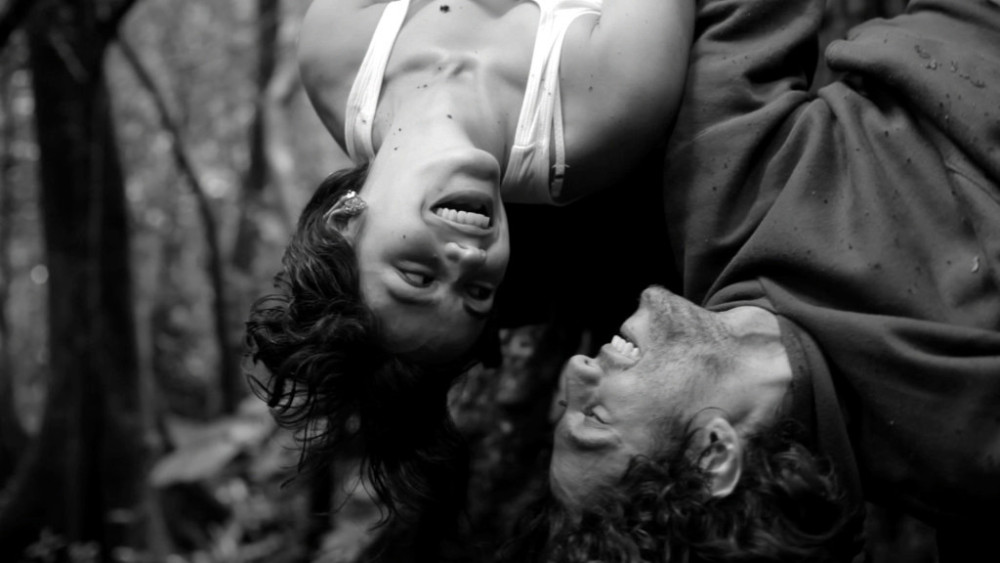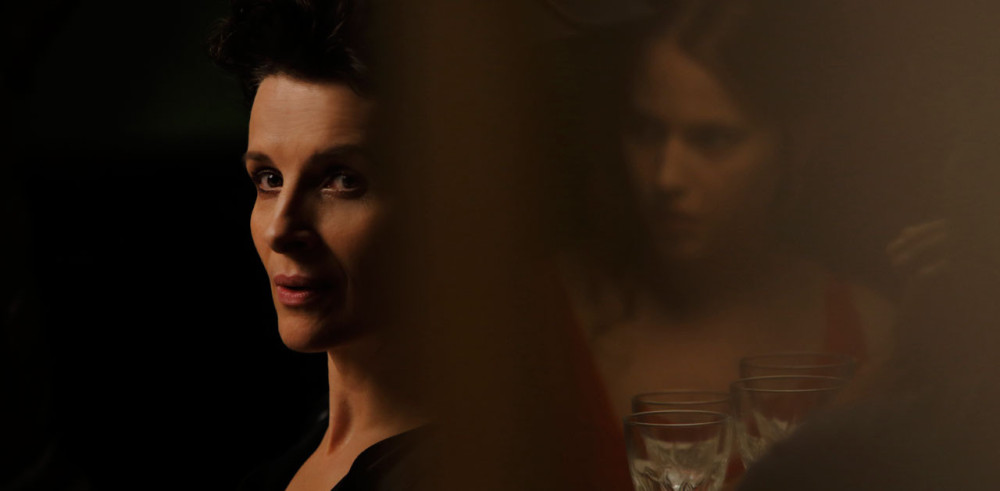
Another installment of capsules from the Miami International Film Festival is here!
Viaje
There’s something about fleeting romances that just play well; some awkward conversation here, a little love-making there. Paz Fabrega knows exactly what makes watching a film like this work, one in which love, or the idea of love, seems destined to end.
Viaje revolves around two individuals, Luciana (Kattia Gonzalez) and Pedro (Fernando Bolanos), who happen to meet and hit it off at a party. After a night together, the two decide to head to the forest, where Pedro plans on finishing his thesis, to spend more time together before Luciana flies off to London. Chemistry between leads is essential to the romance genre and Gonzalez and Bolanos have plenty of it to give. Their attraction is palpable, so much so that the viewer can practically feel the gentle caresses one gives another.
Emphasizing the power of the image is the lush B&W cinematography that demands theatrical viewing, with shadows and light being used to gorgeous effect more often than not. There’s something about witnessing beautiful forests without the distraction of color that makes for a great experience and Fabrega knows that the beauty of the relationship depicted needs not take away from the beauty of their surroundings. If anything occasionally feels like a distraction, it’s the score that pops out of nowhere sometimes, drawing away from the overwhelming sound of nature.
By clocking it in at a comfortable 70 minutes, Viaje captures the essence of fleeting romances, meandering comfortably until it reaches its end, knowing that moments devoid of dialogue matter just as much as those where we bumble through our first interactions with someone.

The Wait (L’atessa)
From its opening shots, L’atessa establishes itself as a film that knows it’s gorgeous to look at. Piero Messina—a filmmaker who worked as assistant director on La Grande Bellezza prior to his directorial feature debut here—knows he’s crafting a film that will look great, even though it doesn’t have the extravagance or the profundity that Grande does.
The plot is simple enough: a grieving mother is forced to interact with her son’s fiancee, a young woman entirely unaware that he has passed away. This, essentially, makes for a work where two talented actresses (Juliette Binoche and Lou de Laâge) play against each other and on their own for just over an hour and a half. By all means this should sound like an appealing feature, and it is in many ways, as watching Binoche grieve should be an international pastime that audiences indulge in on a yearly basis.
L’atessa’s issue, however, is that its filmmaker prefers to indulge in offering beautiful imagery (courtesy of DP Francesco Di Giacomo) rather than giving insight into his characters beyond surface level introspection through monologues and voicemails. Of course, a focus on style over substance isn’t always a major flaw, but one can feel it here, even when Binoche and de Laâge are delivering pure vulnerability against heavy-handed visuals. The contrast between these qualities results in a feature that sometimes feels as unpolished and occasionally sluggish as many a debut do.
To say one might be better off watching Krzysztof Kieślowski’s Blue for a better scope of what Binoche can do with a grieving character would be unfair, but it’s an easy comparison to draw up between the two works. But even without the script these actresses deserve, L’atessa is still well-crafted enough to give its audience a decent viewing experience with two performances worth witnessing.
—
For more coverage of the Miami International Film Festival, check out the following links:



 Derek
Derek
 Isabelle
Isabelle